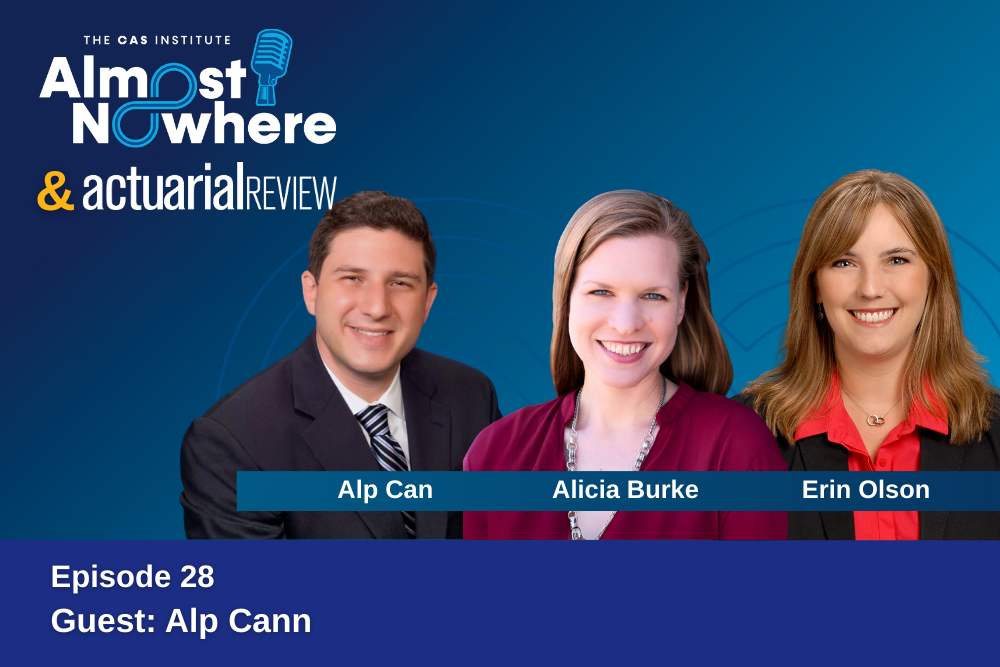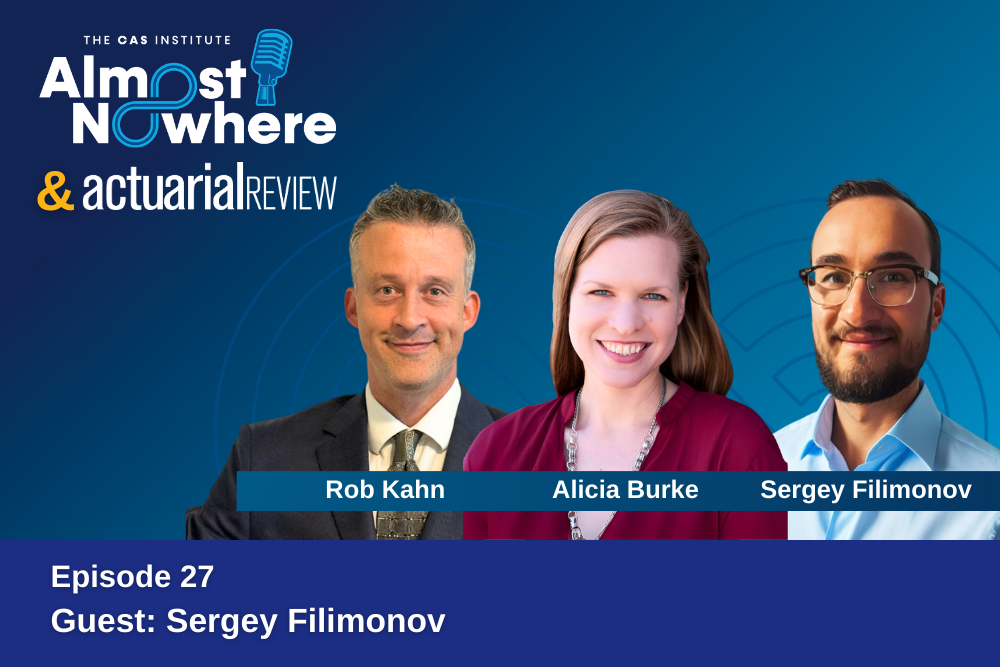The two most engaging moments for me at the CAS Spring Meeting in May were the ACAS and FCAS New Member Receptions. Along with other CAS leaders, I had the opportunity to speak directly with the next generation of actuaries and hear what’s top of mind for them. While we celebrated our new member’s significant achievement, we also listened to how we can make the CAS even better. This was a fitting example of how the CAS Board is leading with engagement in mind, and here are a few of the other things we are doing.
Town halls
Town Halls allow members to ask tough questions and CAS leaders are committed to continuing this tradition. During the Spring Meeting, we were on stage to talk about the CAS Strategic Plan and answer live questions from those attending in-person and online. I was happy to see so many members step up to the mic to share their thoughts with us. Similar question and answer opportunities occur when CAS Board members speak at Regional Affiliate meetings.
Member attendance at board meetings
Our revised policy on member attendance at CAS Board meetings supports our efforts towards greater transparency of board deliberations and offers members additional opportunities to gain insights into the workings of our board. Members are invited to attend and observe all virtual board meetings. The schedule and draft agendas are on the CAS website calendar. Members are also invited to connect virtually to the in-person board meetings (provided a virtual option for remote participation by board members has already been pre-arranged). In-person board meetings are typically held quarterly, and those held in conjunction with the Spring and Annual Meetings give members the opportunity to conveniently attend a board meeting in-person.
Focus groups
At the end of 2021, the CAS conducted focus group discussions with new CAS Fellows and Associates who were asked questions on engagement, volunteerism, communication vehicles and DE&I. We specifically asked new Associates about the candidate experience and how we can improve the credentialing and onboarding experience. We took this information and put together an action plan to implement the members’ recommendations. For example, just prior to this year’s Spring Meeting, we hosted a new members’ virtual networking event, which received positive reviews. Happily, we discovered that some ideas were already in progress, validated certain projects that were underway. Encouraged by how much we learn from focus groups, our Member Engagement Advisory Working Group is planning future focus groups with various cohorts of members, such as those working outside North America.
Surveys
Surveys can be highly effective in learning our membership’s wants and needs. Our Member Advisory Panel, or MAP, has been in practice for several years now and has surveyed everything from soft skills to the 2021 proposed constitution and bylaws changes. We also conduct surveys on certain topics (e.g., job tasks) or with groups (e.g., candidates). Most recently we conducted surveys of volunteers and volunteer chairs.
The Volunteer Interest and Participation (VIP) Survey is one of our most valuable tools for matching up members with meaningful volunteer opportunities. We are also now engaging with members who only have a little time to spare by offering micro-volunteering opportunities, which require minimal time but have a big payoff in terms of giving back.
Exposure periods for new initiatives
For years, the Actuarial Standards Board and other organizations have used this approach to ensure that policies under consideration are exposed and receive comments from all interested parties. In 2021, the CAS exposed a revision of its diversity, equity and inclusion (DE&I) strategy to the membership. The member feedback resulted in the adoption of an updated strategic approach to DE&I in February 2022. Exposure and comment periods are open and transparent methods of engaging members in the development of CAS policies and we are committed to continuing this practice.
Our representative form of governance
Finally, the CAS has a representative form of governance, and voting is the primary means for members to engage. Once a year, CAS Fellows and members who have been Associates for at least five years elect four new directors. They are charged with listening to the members and making decisions based on what is good for the entire membership. Our board, which consists of 12 member-elected directors and three appointed directors who come from nonactuarial backgrounds, takes its job very seriously.
So, if you really want to be engaged, consider representing the membership by joining the CAS Board of Directors. Any Fellow can run for the CAS Board by petitioning to be placed on the ballot.
The CAS Board is focused on engagement with members, and we just had a robust discussion on this topic at our last meeting. We recognize that members have different desires on how and how much to engage. It’s important that we meet all of our members where they want to engage, and we are committed to this effort.
Visit casact.org/article/2022-cas-elections-kick-call-nominations for information on election petitioning.













